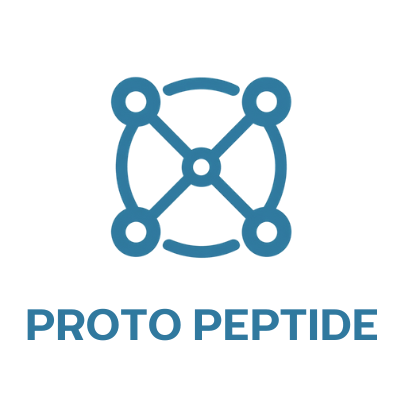Peptides and Aging: What Science Is Uncovering About Longevity
Aging is a complex biological process influenced by genetic, metabolic, and environmental factors. In recent years, peptides have emerged as a key area of interest in longevity research, with their ability to regulate cellular repair, inflammation, mitochondrial health, and hormonal balance. While the pursuit of longevity is multifaceted, peptides offer promising pathways for studying how aging can be slowed or its effects mitigated.
The Role of Peptides in Aging Mechanisms
Scientific research into aging has identified several key biological processes—such as telomere shortening, oxidative stress, mitochondrial dysfunction, and hormonal decline—that contribute to aging-related degeneration. Certain peptides are being studied for their potential to influence these pathways by promoting tissue regeneration, improving metabolic efficiency, and reducing systemic inflammation.
Terzapeptide: Addressing Metabolic Decline
Metabolic dysregulation is a hallmark of aging, often leading to conditions like insulin resistance, sarcopenia, and increased fat mass. Terzapeptide, a dual GIP and GLP-1 receptor agonist, is currently under investigation for its capacity to improve insulin sensitivity and promote weight loss in metabolic research models. Its ability to regulate glucose and lipid metabolism may provide insights into slowing metabolic aging and reducing age-associated cardiovascular risk.
Retatrutide: A Tri-Agonist with Longevity Implications
Retatrutide targets GLP-1, GIP, and glucagon receptors, offering a multi-faceted approach to metabolic enhancement. In preclinical studies, it has shown impressive outcomes in reducing body weight and visceral fat, both of which are risk factors for accelerated aging and chronic disease. Its potential to improve mitochondrial efficiency and decrease systemic inflammation may make it a useful peptide for investigating age-related degenerative conditions.
Tesamorelin: Growth Hormone Modulation and Cellular Repair
As individuals age, natural growth hormone (GH) levels decline, contributing to decreased muscle mass, slower cellular repair, and increased visceral fat. Tesamorelin, a GHRH analog, is being researched for its effects on stimulating endogenous GH release. Studies suggest it can reduce visceral adiposity and improve IGF-1 levels—factors linked to better body composition, tissue maintenance, and possibly extended cellular health. These properties make Tesamorelin a subject of interest in the context of healthy aging and longevity research.
Peptides and Inflammation Control
Chronic low-grade inflammation, is a key driver of age-related disease. Several peptides under investigation—including those not limited to the ones above—may influence inflammatory pathways, supporting tissue regeneration and immune function. By dampening inflammatory signals and supporting healthy immune responses, peptides may serve as tools to extend health span in laboratory models.
Conclusion: Toward Healthspan and Longevity
While aging is inevitable, the goal of modern science is to extend health span—the period of life spent in good health—rather than merely prolonging lifespan. Peptides like Terzapeptide, Retatrutide, and Tesamorelin offer valuable insights into managing metabolic decline, hormonal imbalances, and inflammatory processes associated with aging. As research continues, these peptides may pave the way for novel interventions that help unlock the secrets of longevity.
Disclaimer
This content is intended for informational and educational purposes only and is not intended to promote or sell any product. It is not a substitute for professional medical advice, diagnosis, or treatment. Always consult with a qualified healthcare provider before starting any new supplement or research compound. The statements provided have not been evaluated by the FDA or Health Canada and are subject to change as scientific understanding evolves.
